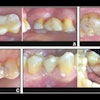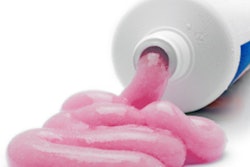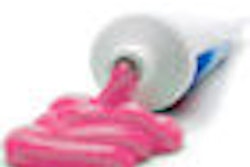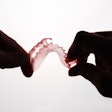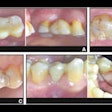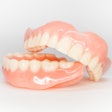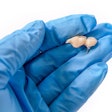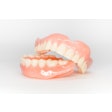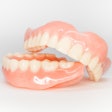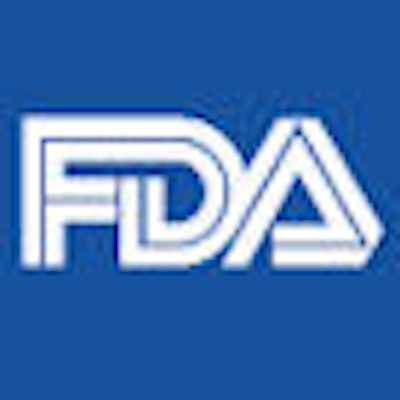
The U.S. Food and Drug Administration (FDA) is asking manufacturers of denture adhesives to take a more proactive role in informing consumers about the risks of zinc poisoning posed by some denture adhesive products.
In a letter sent February 23 to all manufacturers of denture adhesives, Steven Silverman, director of the FDA's Office of Compliance for the Center for Devices and Radiological Health, said the agency has received numerous reports of adverse events related to the use of denture adhesives.
"There are literature and research that suggest that zinc contained in some denture adhesives may be a contributing factor in these adverse events," Silverman wrote. "Although zinc is an essential nutrient, overexposure may result in zinc toxicity. We are notifying all manufacturers of denture adhesives and asking for their assistance in dealing with this public health issue."
Consumers using denture adhesives have reported local and systemic symptoms consistent with zinc toxicity that may be associated with use of the product, including myeloneuropathy of the extremities and blood dyscrasias, Silverman noted. Consumers most at risk include people using excessive amounts of these products over extended periods of time, people with poor-fitting dentures, and people who are unable to read or understand product labeling.
According to the FDA, factors that may contribute to adverse events include:
Package labeling may not list zinc as an ingredient.
Users may not be aware that overexposure to zinc may lead to zinc toxicity, which may result in adverse health effects.
- Users may continue to use these products even after experiencing adverse events because they may not associate the adverse events with the use of denture adhesives. This may occur because adverse events may not manifest themselves for months to years while using the product and consumers may assume such events are caused by something other than the denture adhesive.
Users may not know how to use the product properly, resulting in an adverse event. For example, users may not be able to understand the instructions for using the product due to confusing and potentially misleading labeling. Until recently, denture adhesive labels did not give warnings or definitions of overuse.
As a result, the FDA is recommending that manufacturers of dental adhesives with zinc consider the following:
- Performing a risk analysis of product labeling to assess how risks can be mitigated
- Conducting a human factors study to assess consumer understanding of labeling and the potential for misuse of these products
- Modifying labeling to include a statement that the product contains zinc if appropriate and define maximum safe usage in easily understood terms
- Replacing zinc with an ingredient that presents less health risks in situations of overuse, and if it is a new formulation, submitting a new 510(k)
The FDA may issue a communication that would be posted on the agency's website to notify consumers and the healthcare community of this possible health risk, Silverman noted.
"As a manufacturer of denture adhesives, you are responsible for compliance with the requirements of the Medical Device Reporting regulation," he wrote. "These requirements include reporting to FDA deaths and serious injuries that your product may have caused or contributed to and establishing and maintaining adverse event files, and submitting summary annual reports."


